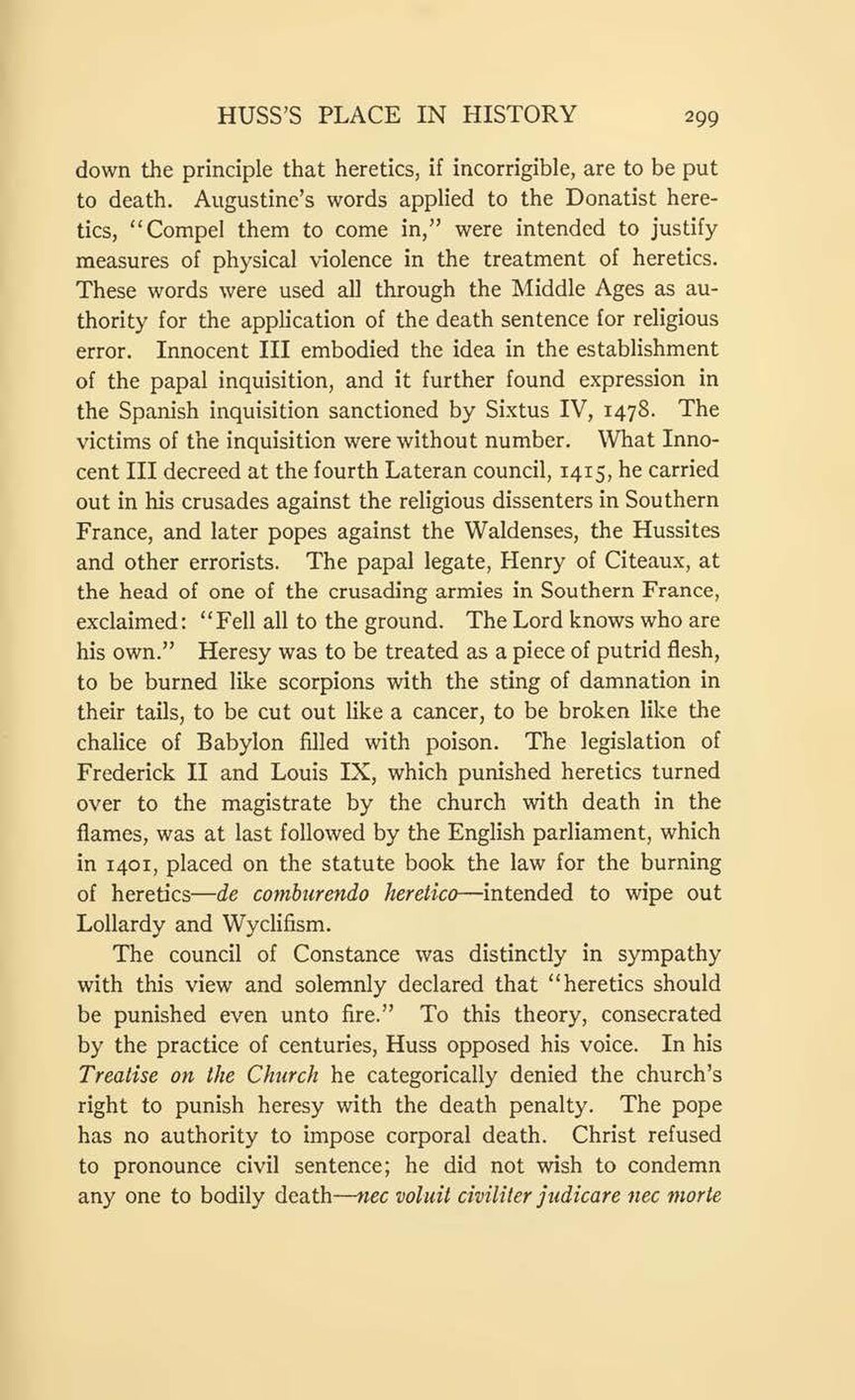error, down the principle that heretics, if incorrigible, are to be put to death. Augustine’s words applied to the Donatist heretics, “Compel them to come in,” were intended to justify measures of physical violence in the treatment of heretics. These words were used all through the Middle Ages as authority for the application of the death sentence for religious Innocent III embodied the idea in the establishment of the papal inquisition, and it further found expression in the Spanish inquisition sanctioned by Sixtus IV, 1478. The victims of the inquisition were without number. What Innocent III decreed at the fourth Lateran council, 1415, he carried out in his crusades against the religious dissenters in Southern France, and later popes against the Waldenses, the Hussites and other errorists. The papal legate, Henry of Citeaux, at the head of one of the crusading armies in Southern France, exclaimed: “Fell all to the ground. The Lord knows who are his own.” Heresy was to be treated as a piece of putrid flesh, to be burned like scorpions with the sting of damnation in their tails, to be cut out like a cancer, to be broken like the chalice of Babylon filled with poison. The legislation of Frederick II and Louis IX, which punished heretics turned over to the magistrate by the church with death in the flames, was at last followed by the English parliament, which in 1401, placed on the statute book the law for the burning of heretics—de comburendo heretico—intended to wipe out Lollardy and Wyclifism.
The council of Constance was distinctly in sympathy with this view and solemnly declared that “heretics should be punished even unto fire.” To this theory, consecrated by the practice of centuries. Huss opposed his voice. In his Treatise on the Church he categorically denied the church’s right to punish heresy with the death penalty. The pope has no authority to impose corporal death. Christ refused to pronounce civil sentence; he did not wish to condemn any one to bodily death—nec voluit civiliter judicare nec morte
